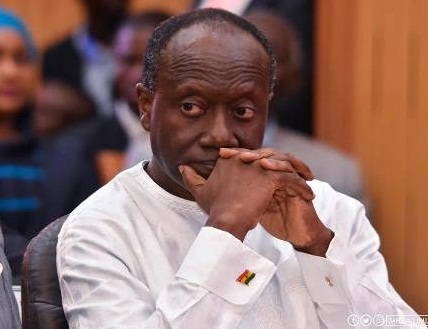
The HIPC Initiative was launched in 1996 by the IMF and World Bank, to provide debt relief for cash-strapped countries based on the implementation of poverty alleviation strategies prescribed by the two financial bodies with the aim of ensuring that no poor country faced a debt burden it could not manage.
To be considered for the HIPC initiative, countries must face an unsustainable debt burden which cannot be managed with traditional means. In 2005, to help accelerate progress toward the United Nations Millennium Development Goals (MDGs), the HIPC Initiative was supplemented with the Multilateral Debt Relief Initiative (MDRI) .
The MDRI allows for 100 percent relief on eligible debts by three multilateral institutions – the IMF, the World Bank, and the African Development Fund (AfDF) — for countries completing the HIPC two step initiative process.
Of course until a country goes through the process, that country is not officially declared HIPC and this is where I agree with the Information Minister, Kojo Oppong Nkrumah debunking claims that Ghana has been declared HIPC. It is also true, as he indicated, that the HIPC programme was limited to a particular point in time that Ghana and a number of African countries applied, benefited, exited and was done with it and currently there is no HIPC programme.
In form, I totally agree with Hon. Kojo Oppong Nkrumah but in substance I totally disagree with him. What may be fake news is with the form, that IMF has not officially declared Ghana HIPC but in substance Ghana seems to be in the same conditions that existed at the time of President Kufuor when, in form, the IMF declared Ghana HIPC.
I believe the narrative now is with the substance of the current economic state of the country and to appreciate why it is being said that the country is HIPC, we may need to look at the indicators when Ghana was officially declared HIPC and compare to what we have now. I reproduce a comparison done by ASEPA for this purpose.
| Economic Indicator | 2001 | 2020 |
| Debt/GDP Ratio | 61.7% | 76.9% |
| Fiscal Deficit | 8.5% | 14% |
| Debt Servicing Ratio(%GDP) | 7.6% | 11% |
| Foreign Reserve as Percentage of Public Debt | 5.6% | 1.22% |
| Amount Owed By A Single Ghanaian | GHS250 | GHS9,750 |
Source: Alliance For Social Equity & Public Accountability (ASEPA)
The above table shows Ghana’s position in 2001 when the IMF officially, in form, declared the country HIPC. Debt to GDP ratio was 61.7%; fiscal deficit was 8.5%; debt servicing ratio was 7.6%; foreign reserves was 5.6% and each and every Ghanaian owed GHS250.
Fast forward to 2020 – debt to GDP ratio is 76.9%; fiscal deficit is 14%; debt servicing ratio is 11%; foreign reserves is 1.22% and each and every Ghanaian owes GHS9,750
Now, despite the fact that the 2020 indicators are far worse than the 2001, what Hon. Kojo Oppong Nkrumah wants to say is that IMF has not officially declared Ghana HIPC and that the programme does not exist to be declared as such. Fair game, but if Ghana was heavily indebted and poor in 2001 with these 2020 indicators, is Ghana heavily indebted and poor? Your guess is as good as mine.
In substance Ghana is heavily indebted and poor but in form IMF has not said so. If your husband is showing signs of COVID-19 and because he has not been officially tested yet, you ignore all the protocols and refuse to isolate him and take the necessary precautions not to get the household infected, when your friends tell you your husband has COVID-19 based on the symptoms, you can validly say its fake news and do nothing till one day all of you are found dead.
If your mother is in coma and you refuse to accept to seek the appropriate help but you say she is just asleep, she might end up eventually dying.
As President Kufuor said in 2001, there is no pride in declaring oneself poor. “Man must be practical, so we took HIPC as a reality and must work to turn the situation round.”
Ghana has in substance attained a “Heavily Indebted & Poor Country” status from the indicators as compared with 2001 but in form not yet declared by IMF. So I guess until they do we must bury our heads in the sand like an ostrich.
By: Akua Agyeiwaa Owusu
